|
|
Post by Deleted on Nov 1, 2009 11:55:55 GMT
Thanks, bjd.
|
|
|
|
Post by spindrift on Nov 1, 2009 20:58:55 GMT
Shall we do it, Deyana?
|
|
|
|
Post by Deleted on Nov 1, 2009 21:41:19 GMT
I'd be so curious to know of the shock waves this DNA test has sent through families who thought they were of a particular heritage,racial makeup etc. Interesting and fascinating that we live in a day and age where this can be done.
|
|
|
|
Post by rikita on Nov 2, 2009 22:29:39 GMT
i must admit that each time i come across this thread i can't help stumbling a bit over the idea implied by the title - that our heritage makes us who we really are. which i just don't really think is the case...
|
|
|
|
Post by Deleted on Nov 2, 2009 23:09:24 GMT
i must admit that each time i come across this thread i can't help stumbling a bit over the idea implied by the title - that our heritage makes us who we really are. which i just don't really think is the case... I agree quite a bit with you on this rikita. |
|
|
|
Post by fumobici on Nov 2, 2009 23:16:36 GMT
In fact in some respects this idea that we are a product of our genetic makeup for me smacks of fatalistic determinism and seems very disempowering.
|
|
|
|
Post by Deleted on Nov 2, 2009 23:23:39 GMT
I think you're all puting more thought into the title of this thread then it merits.
I wasn't sure what to title it, maybe I could have put it better, it's not meant to signify anything dark at all.
But, I guess you can make of it what you wish.
|
|
|
|
Post by fumobici on Nov 2, 2009 23:31:31 GMT
Nonsense, the title is fine. We are just projecting onto it.
|
|
|
|
Post by rikita on Nov 3, 2009 0:50:52 GMT
i have nothing against the title. just stumble across it each time, and for a second expect somethign different before i remember the topic of the thread...
who i really am, is a mystery to me anyway...
|
|
|
|
Post by Deleted on Nov 3, 2009 3:50:09 GMT
Deyana,no one is criticizing the title. Please. It's fascinating. Pay none of us any mind,just rambling,that's all.  |
|
|
|
Post by Deleted on Nov 3, 2009 6:22:57 GMT
That who we really are anyway, just ramblers...
|
|
|
|
Post by Deleted on Nov 3, 2009 12:51:56 GMT
yep, curious ramblers....
|
|
|
|
Post by deyana on Jul 3, 2017 13:12:59 GMT
So my eldest son went ahead and send the kit off to Ancestry dna, The results were surprising and I thought I would make a thread about this subject.
I wondered if anyone else has had theirs tested and of the results? It's a fascinating way to learn more about who you really are and where your ancestors actually came from.
Now this is all we knew before the test results came back. I was from India and his dad was French Canadian. As it turns out he is only 40% South Asian and only 2% French!
|
|
|
|
Post by deyana on Jul 3, 2017 13:15:41 GMT
So here is a screenshot of the results: 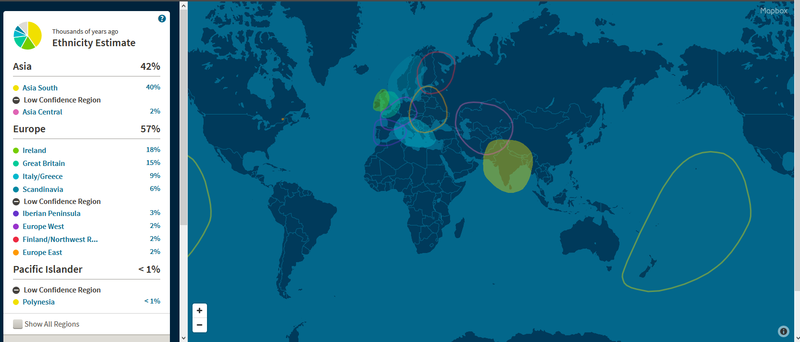 |
|
|
|
Post by deyana on Jul 3, 2017 13:19:17 GMT
The results - to make it clearer: Where the dna comes from: 40% Asia South: The ethno-linguistic composition of the population of South Asia, that is the nations of India, Pakistan, Bangladesh, Nepal, Bhutan, Maldives and Sri Lanka is highly diverse. The majority of the population fall within two large linguistic groups, Indo-Aryan and Dravidian. India, Pakistan, Nepal, Bhutan, Bangladesh, Sri Lanka.  South Asia (all not in gray)  |
|
|
|
Post by deyana on Jul 3, 2017 13:21:13 GMT
2% Central AsiaAfghanistan, Azerbaijan, Kazakhstan, Kyrgyzstan, Tajikistan, Turkmenistan, Uzbekistan.
Afghanistan: Afghanistan is a multiethnic and mostly-tribal society. The population of the country is divided into the following ethnolinguistic groups: Pashtun, Tajik, Hazara, Uzbek, Aimak, Turkmen, Baloch, Pashai, Nuristani, Gujjar, Arab, Brahui, Pamiri and a few others. 
Azerbaijan: The modern ethnonym "Azerbaijani" or "Azeri" refers to the Turkic peoples of Iranian Azerbaijan and Republic of Azerbaijan, who historically called themselves or were referred to by others as Muslims, Turks, Turkmens, Persians, or Ajams (by Kurds), and religious identification prevailed over ethnic identification. 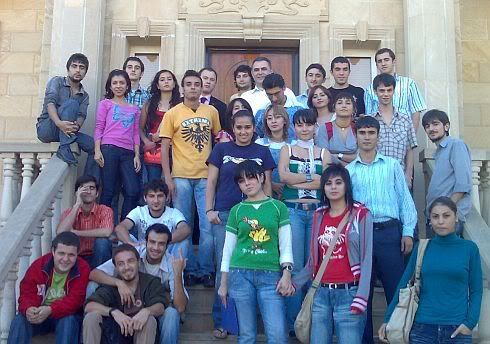
Kazakhstan: The Kazakhs are descendants of the Turkic and medieval Mongol tribes – Argyns, Dughlats, Naimans, Jalairs, Keraits, Khazars, Qarluqs; and of the Kipchaks and Cumans, and other tribes such as the Huns, and ancient Iranian nomads like the Sarmatians, Saka and Scythians from East Europe populated the territory between ... 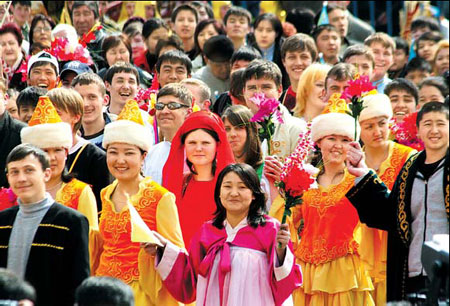
Kyrgyzstan: (Kyrgyz (71.0%) Uzbeks (14.3%) Russians (7.8%) Dungans (1.1%) Uyghurs (0.9%) Tajiks (0.9%) Turks (0.7%) Tatars (0.6%) Kazakhs (0.6%) Ukrainians (0.4%) Koreans (0.3%) Azerbaijanis (0.3%) Germans (0.2%)  Tajikistan: Tajikistan: People. There are 7.8 million people in Tajikistan according to 2011 estimate. Which is Tajik 79.9%, Uzbek 16.5%, Russian 1.1% (declining because of emigration), Kyrgyz 1.1%, other (including Pashtuns, Bukharian Jews and Volga Germans) 2.6% (2009 population census). Growth rate is 1.88 (2009 est.)  Turkmenistan: Historically, all of the Western or Oghuz Turks have been called Türkmen or Turkoman; however, today the terms are usually restricted to two Turkic groups: the Turkmen people of Turkmenistan and adjacent parts of Central Asia, and the Turkomans of Iraq and Syria. 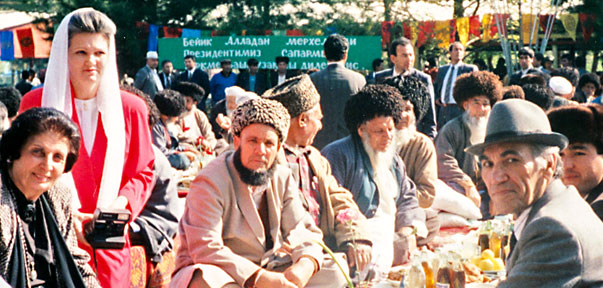 And Uzbekistan: Uzbekistan is a multinational state. Different nations and nationalities live in this country– Uzbeks, Karakalpaks,Tajiks, Kazakhs, Kirghizes, Uygurs, Dungans, west and east Slavs – Russians, Ukrainians, Byelorussians; also big diasporas of Koreans, Iranians, Armenians, Georgians, Azerbaijanis, Tatars, Bashkirs, Germans, Jews, Lithuanians, Greeks, Turks live in Uzbekistan. 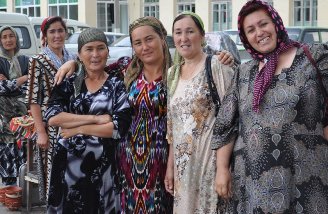 Map of Asia Central: 
|
|
|
|
Post by deyana on Jul 3, 2017 13:22:08 GMT
Ireland 18% - Ireland, Wales and Scotland: The territories widely considered Celtic nations - Wales, Scotland, Ireland, and the Isle of Man, commonly referred to as the "Celtic fringe". In each of these nations a Celtic language is spoken.  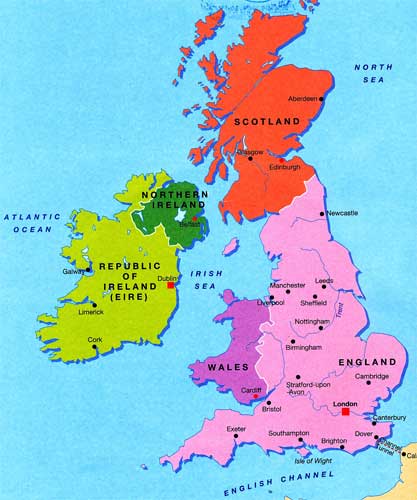
|
|
|
|
Post by deyana on Jul 3, 2017 13:22:52 GMT
Great Britain 15% England, Wales and Scotland: Historically, the English population is descended from several peoples — the earlier Britons and the Germanic tribes that settled in Britain following the withdrawal of the Romans, including Angles, Saxons, Jutes and Frisians. Collectively known as the Anglo-Saxons, they founded what was to become England (from the Old English Englaland) along with the later Danes, Normans and other groups. In the Acts of Union 1707, the Kingdom of England was succeeded by the Kingdom of Great Britain. Over the years, English customs and identity have become fairly closely aligned with British customs and identity in general.  
|
|
|
|
Post by deyana on Jul 3, 2017 13:23:30 GMT
|
|
|
|
Post by deyana on Jul 3, 2017 13:24:13 GMT
Scandinavia 6%Sweden, Norway, Denmark: In English usage, Scandinavia sometimes refers to the geographical area, also known as the Scandinavian Peninsula. The name Scandinavia originally referred vaguely to the formerly Danish, now Swedish, region Scania. The terms Scandinavia and Scandinavian entered usage in the late 18th century as terms for Denmark, Norway and Sweden, their Germanic majority peoples and associated language and culture, the term being introduced by the early linguistic and cultural Scandinavist movement. The majority of the population of Scandinavia are descended from several (North) Germanic tribes who originally inhabited the southern part of Scandinavia and spoke a Germanic language that evolved into Old Norse. Icelanders and the Faroese are to a significant extent descended from the Norse, and are therefore often seen as Scandinavian. Finland is mainly populated by Finns, with a minority of approximately 5% of Swedish speakers. A small minority of Sami people live in the extreme north of Scandinavia.  
|
|
|
|
Post by deyana on Jul 3, 2017 13:24:49 GMT
3% Iberian Peninsula - Spain and Portugal Iberian Peninsula, peninsula in southwestern Europe, occupied by Spain and Portugal. Its name derives from its ancient inhabitants whom the Greeks called Iberians, probably for the Ebro (Iberus), the peninsula’s second longest river (after the Tagus). The Pyrenees mountain range forms an effective land barrier in the northeast, separating the Iberian Peninsula from the rest of Europe, and in the south at Gibraltar the peninsula is separated from North Africa by the narrow Strait of Gibraltar. The Atlantic Ocean washes the northern, western, and southwestern coasts, and the Mediterranean Sea washes the southern and eastern shores. Cape Roca, in Portugal, is the most westerly point of continental Europe.  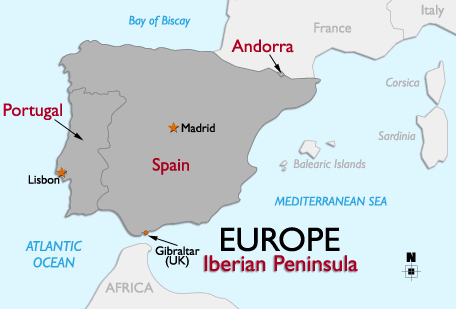
|
|
|
|
Post by deyana on Jul 3, 2017 13:25:18 GMT
Europe West - 2%Belgium, France, Germany, Switzerland, Luxembourg and Liechtenstein. The Europe West region is a broad expanse stretching from Amsterdam's sea-level metropolis to the majestic peaks of the Alps. Geographically dominated by France in the west and Germany in the east, it includes several nations with distinct cultural identities. From the boisterous beer gardens of Munich to the sun-soaked vineyards of Bordeaux and the alpine dairy farms of Switzerland, it is a region of charming cultural diversity. 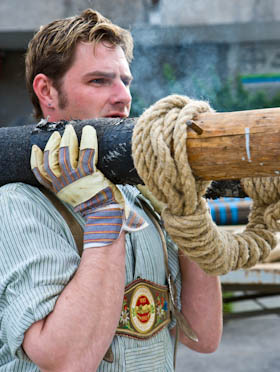 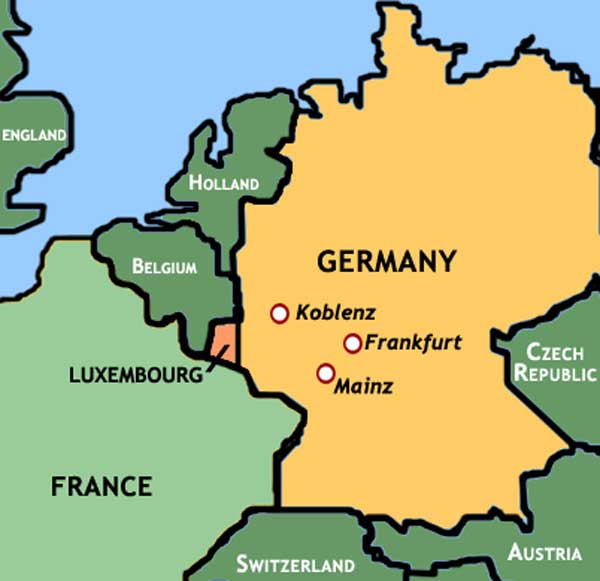
|
|
|
|
Post by deyana on Jul 3, 2017 13:26:02 GMT
Finland Northwest Russia 2% Finland was a constituent part of the Swedish Empire for centuries, and had its earliest interactions with the Russian Empire through the auspices of that rule. Russia occupied Finland several times: The lesser and greater wraths respectively saw a Russian occupation of Finland, and the Russian Empire eventually overpowered Sweden to make Finland a part of its empire in 1809.  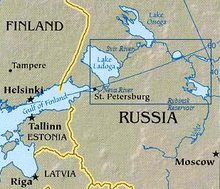 Eastern Europe (comprising all countries in that region) 2% Armenians, Russians, Talysh, Avars, Turks, Tatars, Ukrainians and Poles. mixed or other (i.e. Luxembourgers, Eastern or Southern Europeans, Africans and Asians, and Latin Americans) 10%. other Scandinavian, Germans, Frisians, other European, Greenlandic people and others. 
Pacific Islander (Less than 1%) Polynesia. Tonga and samoa 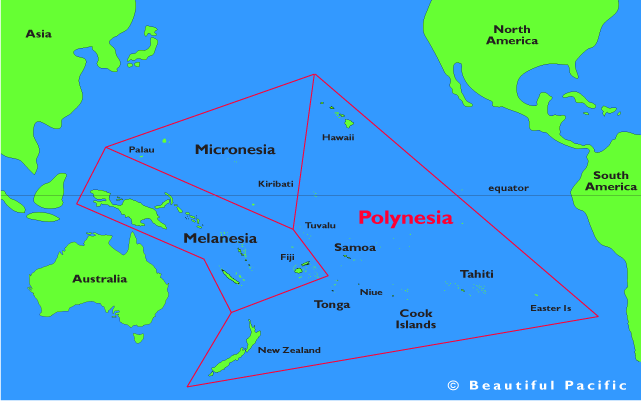
|
|
|
|
Post by lagatta on Jul 3, 2017 14:02:31 GMT
I'm astounded that his dad has no Indigenous ancestry. Many Irish people fleeing the potato famine arrived in Québec at Grosse-Ile. There, in Québec and in Montréal many died of epidemics, and many of their children were adopted by Québecois francophones - at the time religion was more important than language. Catholic Highland Scots often stayed on after the English conquest and married Québécoise women. But at the same time, most francophones have Indigenous ancestry - the colony was mostly male for decades, and several colonists took off to the woods and settled down with Indigenous ladies. "Going Native" was more appealing to many than the regimented, churchbound society that had developed (which was contrary to Samuel de Champlain's ideas of métissage).
Also keep in mind that many francophones have Breton ancestry, which is also Celtic fringe. The article left out the Cornish people.
I have no desire to have my DNA done. A maternal uncle did, and confirmed the fact that we have some West African ancestry as well as some Indigenous ancestry, as well as a range of western and southern Europeans. That does not make me a Black person or an Indigenous person though. Simply extremely common in the Americas.
|
|
|
|
Post by whatagain on Jul 3, 2017 14:49:35 GMT
I tested my DNA because my daughter had a variant that was not explained and whihc could have made for malformation. Since they found the variant in my DAN, they considered my daughter was relatively safe on that count.
Now being tested to be told that globally I am human and I have ancestors all over the world - or not - will not change anything so no I will not be tested.
I'd like to see the results of such tests on racist people such as Hitler or Le Pen family...
|
|
|
|
Post by mossie on Jul 3, 2017 16:07:13 GMT
That is a fascinating survey Deyana, just goes to show what a mixed up lot we are and that the mixing has gone on for 1,000s of years.
|
|
|
|
Post by kerouac2 on Jul 3, 2017 16:15:28 GMT
This is fascinating, Deyana. I am always tempted to take a test whenever anybody posts about it, because I am very intrigued by one thing about my family. My mother's side of the family seems to come from Lorraine "forever," but my biological father was of Swiss origin (both mother and father of Swiss immigrant ancestry in Wisconsin). The odd thing is that my biological father's last name was quite rare and mostly based in the Swiss canton of Glarus. In France, there are only about 80 people with that last name (oddly enough, two of them are famous) and about 95% of the people with that name are in Lorraine. So it has always led me to wonder about "regional" genetic attractions that cause two people to be interested in each other. My mother certainly had hundreds of American soldiers from which to choose, but she chose that one...
|
|
|
|
Post by bjd on Jul 3, 2017 18:52:11 GMT
I thought of doing it some time ago when National Geographic was pushing it. By just sending the little kit to France cost $80 plus the cost of the kit so I decided not to. I asked my sister to do so from Canada but she never got around to it.
|
|
|
|
Post by deyana on Jul 3, 2017 23:16:48 GMT
Lagata, yes, I was surprised too to realize that my son had zero native Indian genes and so little French.
Mossie, yes, we are all much more mixed than we realize.
Whatagain, those people would give us some surprises I am sure! I'd like to know which genes they actually had...
K2 and bjd, I hope you get to have your dna done. The technology is out there, so why not use it? It is quite expensive I know, but it's something you only do once in a life time.
K2, your mother must have been such a fascinating women, she certainly had quite the life.
|
|
|
|
Post by mich64 on Jul 3, 2017 23:34:42 GMT
Hi Deyana! Very interesting to see how this DNA profile is revealed. While I have been interested in submitting a sample, I am quite certain it will come back Great Britian but you never know, some of the documents and family research may not be 100% accurate or complete.
I am interested to know what privacy assurances were provided upon submitting the sample? Being somewhat cynical, we have discussed that eventually they could sell records to Insurance companies etc.
|
|